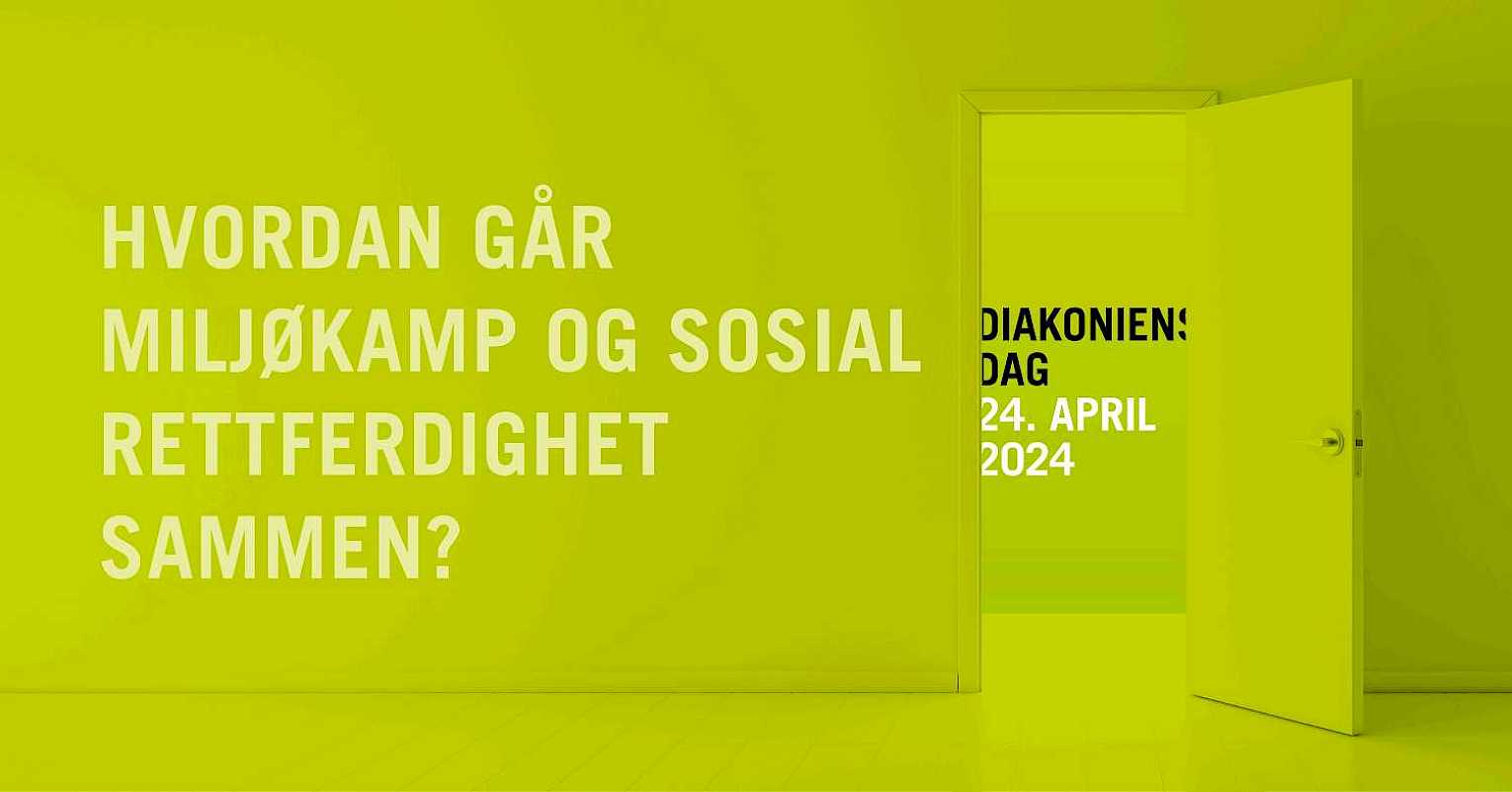
Green Diaconia – How do Environmental Advocacy and Social Justice Work Together?
Conference in Diaconia April 24, 2024
Extreme weather, heat records and water shortages. The climate crisis is becoming part of our everyday lives. Already 10 years ago, the World Council of Churches launched the term “eco-justice” to safeguard basic human rights of those most threatened by climate change. In Europe, the umbrella organization for diaconal actors, Eurodiaconia, is strengthening efforts for a "Social Green Deal" that considers the social injustices that result from environmental initiatives.
When the duality for social justice and protection of creation are the guidelines for diaconal work, we must ask ourselves the following:
- Are we able to provide health care and welfare services in a way that does not burden the environment?
- Do we have sufficient plans to cut our own climate emissions?
- How can we change our way of life and at the same time increase our quality of life?
- What does it mean to think about sustainability in a life cycle perspective?
- And is the view of man as steward of creation still a proper framework in the face of the climate crisis?
We will expand our thoughts, perspectives and perception through lectures and conversations with good examples and recent initiatives that illuminate the theme of "Green Diakoni".
We invite you to a small pilgrimage in our beautiful and green grounds at Diakonhjemmet during the lunch break. Parts of the program will be in English. We will offer streaming until lunch. Register here.
Speakers
Heather Roy has been secretary general of Eurodiaconia (umbrella organization for diaconal organizations in Europe) since 2018. She is a member of various European Commission expert groups and was president of Social Platform (the largest European platform for NGOs in Europe) from 2013 – 2015. She also has extensive experience from grassroots work for the homeless and education of girls and young women in Scotland and Great Britain respectively. She now connects environmental initiatives to issues related to poverty, social injustice, social services and the future of social Europe. In November 2023, Roy was in Norway to talk to leaders of 19 diaconal organizations about this topic.
Kjersti Marie Grosvold Maudal is assistant professor at the Faculty of Social Sciences at VID Specialized University. In the fall of 2023, Maudal held the first lectures at VID on how social workers can work sustainably. At the same time, she, together with colleague Knut Ivar Bjørlykhaug, contributed to a book about how health and social workers can include climate change, the environment and nature in their everyday work: "Green social work - green restructuring in health and social work practice." Maudal lives at Svalbard.
Tale Hungnes is a leader in one of the world's largest humanitarian networks as head of foreign affairs in Caritas Norway. Hungnes is a political scientist and has a master's degree in international human rights. She was formerly the leader of Changemaker, the youth movement of the Norwegian Church Aid. She has a professional interest in diaconia and the church's worldwide social mission. Hungnes will lead the conference’s panel discussion.
Read the whole program at www.diakoniensdag.no (In Norwegian)